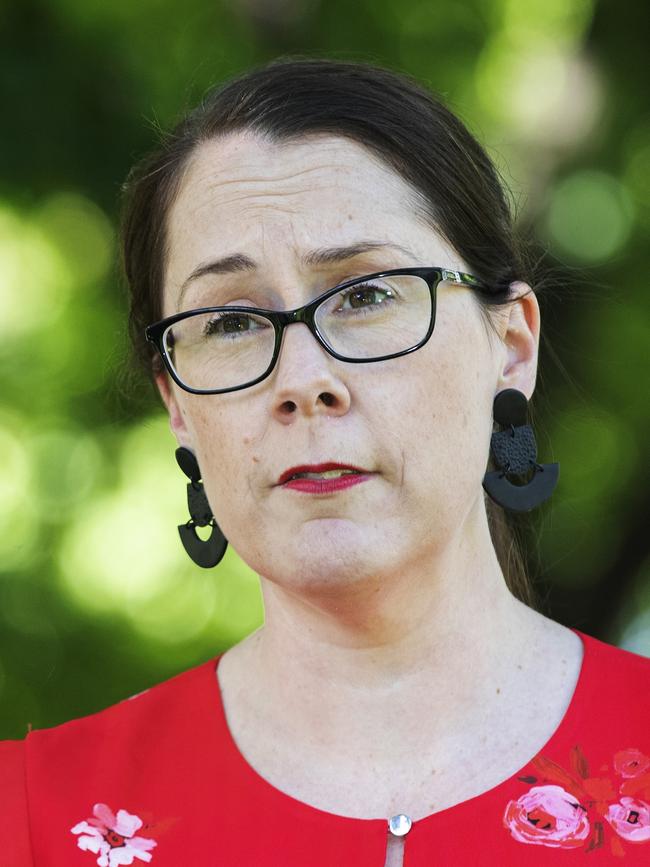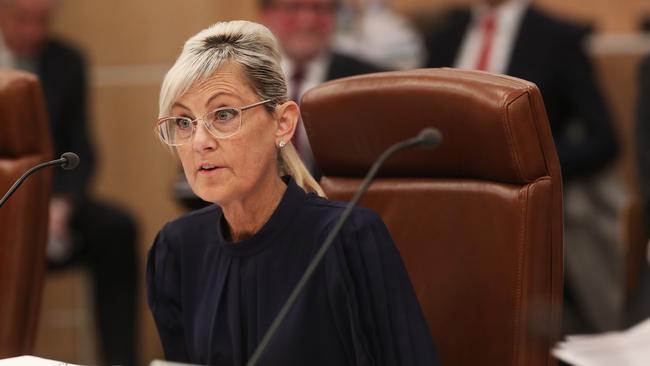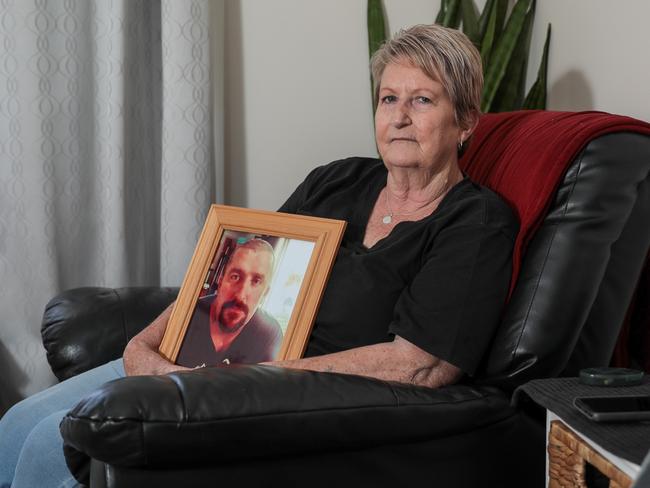Unions push for industrial manslaughter laws to improve workplace safety
Tasmania’s rate of workplace deaths is the second worst in the country and unions want the government to take action to make businesses accountable for employee fatalities.
Tasmania
Don't miss out on the headlines from Tasmania. Followed categories will be added to My News.
THE number of Tasmanians dying in their workplace is the second highest in the country – and double the national average, new data shows.
It has prompted Unions Tasmania to renew calls for an offence of industrial manslaughter but the government said workplace safety laws had already been strengthened.
Safe Work Australia figures show there were eight work-related fatalities in 2020 in Tasmania, which is 3.2 deaths per 100,000 people and twice the national average of 1.5. Only the Northern Territory had a higher rate of workplace deaths.
Unions Tasmania secretary Jessica Munday said an independent report had recommended an offence of industrial manslaughter be created.
She said workplace deaths in Tasmania had been above the national average for the past two years.

“Industrial manslaughter is now the reality for a majority of states and territories – Queensland, ACT, Victoria, the NT and WA,” Ms Munday said.
“The Tasmanian government needs to reverse their opposition to industrial manslaughter and show Tasmanian workers and their families that they value their lives and will hold employers to account when a worker dies on the job.
“Unions hope that industrial manslaughter will act as a deterrent to employers who are thinking about cutting corners on safety. It sends a signal to employers that putting lives at risk won’t be tolerated.
“It also offers greater justice for the families left behind, many of whom see the current penalties as inadequate.”
Workplace Safety Minister Elise Archer said she was working with other states to ensure laws provided the “appropriate level of protection for workers and Tasmanian workplaces are the safest in the country”.
“In May this year, all Work Health and Safety Ministers nationally agreed to strengthen Australia’s model work health and safety laws by introducing gross negligence, or its equivalent, as a fault element in Category 1 offences,” she said.
“By including gross negligence, the offence is broadened and should increase the number of prosecutions for Category 1 offences, which can result in imprisonment for a period of up to five years.
“Based on this, a majority of Ministers did not support the amendment of the model work health and safety laws to provide for an offence of industrial manslaughter.”

Tasmanian Chamber of Commerce and Industry CEO Michael Bailey said industrial manslaughter would “just make our WHS system a legal process rather than focused on improvement”.
“There are currently ample legal avenues available to prosecute recalcitrant businesses – we have seen these implemented from time to time in Tasmania. Industrial manslaughter will only confuse and potentially catch businesses in an unintended way,” he said.
Ms Munday praised Wendy Masters for speaking out on her son’s behalf for greater focus on safety at work.
“Parents like Wendy are incredibly brave in speaking out,” she said.
“The personal impact of a workplace death really hits home when you see the pain suffered by Wendy and her family and when you hear her speak. It brings you to tears. No one should have to suffer that.”
My son ‘gave his all and lost everything’
WENDY Masters is angry that her son Shane died with nothing and the company he worked for was not held accountable for his death.
“What is Shane’s life worth?” she asked.
“What are workers’ lives worth?
“Shane gave his all and lost everything.
“His story and his life, and the lives of many, many workers must not be lost in vain.”
A father of two children, aged two and six, Shane Masters was 28 when he was severely injured in an accident in May 2008 when he was jacking up air bags under a fully laden log truck.

Mrs Masters, of Geilston Bay, said the jack exploded and a colleague fell on to Shane, who was knocked into the work pit, hitting his head and landing on an upright bolt, which pierced his skull and brain.
“Shane had brain surgery and was taken to ICU in an induced coma, his outlook was grim and (he was) not expected to live,” Mrs Masters said.
“He was in a coma for 13 days, he had two strokes and two parts of his skull had to be removed to reduce pressure. He was in hospital for six months.”
Shane, a state judo champion, did not remember his father had died from pancreatic cancer seven years earlier, or that he had children.
Brave and stoic, Mrs Masters said her son was left with long and short-term memory loss, paralysis down his right side and had to learn to walk and speak again and feed himself.
His relationship broke down because of the severity of his injuries and by late 2009 he had moved to live with his mother.
“It was like having a 16-year-old again and he started having seizures after he left hospital, which were horrific,” Mrs Masters said.
“There were lots of appointments with the physio and doctors and psychologists to see.
“We hired a lawyer to see if there was a way to sue the company because the accident should never have happened.
“For 11 years absolutely nothing (has) happened or progressed legally.”
Mr Masters died after a seizure in February this year.
“The worst part of this is that his biggest fear actually happened, he would die during a seizure and leave his children with nothing,” Mrs Masters said.
“His kids and family were his world as was his new granddaughter.
“All he wanted was to live a happy life in his own home with his kids and granddaughter on a bit of ground, instead he died with nothing, no home and on a pension, and a company now not held accountable for his death.”
Mrs Masters said the company Shane worked for when he had the accident had “packed up and moved to the mainland”.
“This is ongoing for us,” she said.
“Someone has to be accountable.”
Originally published as Unions push for industrial manslaughter laws to improve workplace safety



